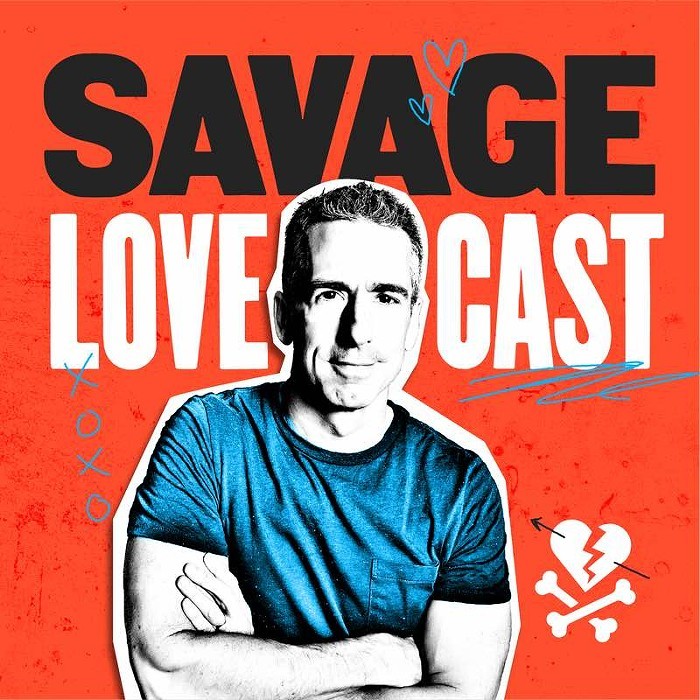A newly released Washington Post/Kaiser Family Foundation poll shows that a large majority of Americans support anti-trans Republican policies. At least that’s the idea you might get from reading a rash of headlines about the poll over the last few days.
The poll shows that 68% of Americans oppose access to puberty-blockers for adolescents aged 10-14 and 58% oppose access to cross-sex hormones for those aged between 15 and 17. According to the Post, these results alongside other findings in the poll show that “Republican lawmakers have the wind at their backs on much of their anti-transgender legislative agenda.” But do they really?
These numbers are wildly different than other polling done on gender-affirming care for adolescents. A PBS NewsHour/NPR/Marist poll conducted in March showed that a majority of Americans (54%) oppose bans on gender-affirming care for minors. And a February Mason-Dixon poll found that 71% of registered voters in Kentucky, a state that Trump won by more than 25 points, expressed opposition to a proposed ban on gender-affirming care for teens.
You might be wondering what could explain such large differences. Has Kentucky suddenly gone woke without anybody noticing? Did PBS NewsHour only poll genderfluid, nonbinary, left-handed lesbians on Tumblr?
If decades of abortion polling are any guide, the answer lies in how you ask the question.
Bans vs Allowances
Democratic pollster Harrison Hickman first came to this realization as a college student while taking a course on women in politics in 1973, when the Supreme Court decided Roe v. Wade. He says that one of the wire services reported on the decision as bringing the law in line with people’s opinions, while another described it as an issue that “divided the country.” Hickman says these split takes resulted from writers citing different polls that asked questions about abortion differently.
“It's really what got me started in public opinion research, because I went and looked and saw Lou Harris asked the abortion question one way, and George Gallup asked it a different way. And they got strikingly different results,” said Hickman.
Full disclosure, I worked for Hickman from 2011 to 2018.
In the 1980s Hickman started to do polling at NARAL, one of the nation’s preeminent abortion rights advocacy groups. He says that Kate Michelman, the group’s president at the time, wanted to develop messaging that would appeal to voters who personally disliked abortion but also disliked the idea of government interfering in private medical decisions. Hickman’s research led to the development of NARAL’s “who decides” slogan, which framed the question of abortion as not about one’s personal feelings about the practice, but whether patients and doctors should be criminalized.
What Hickman discovered through his polling is that the more a question was worded to elicit the idea of patients and doctors being criminalized for abortion, the more support for restrictions dropped. Even subtle phrasing changes like “against the law” vs. “ban” could change voters’ minds. And pollsters that were simply asking if abortion should be legal were missing the point. “Just saying against the law, well, speeding is against the law, you get a fine. That's not what this is. This is a criminal statute,” he said.
Recent polling on a 15-week abortion ban shows just how dramatic these differences can be even with just very subtle changes of phrasing. A Harvard/Harris poll conducted just days after the Dobbs decision last year asked voters, “Do you think your state should allow abortion up to…” followed by a series of choices:
- Rape and incest only
- Up to six weeks
- Up to 15 weeks
- Up to 23 weeks
- Up to 9 months
Collectively, 72% of respondents selected either up to 15 weeks or more restrictive options. This number is far higher than a Wall Street Journal poll conducted just months earlier that asked respondents, “Would you favor or oppose a law to ban abortions after 15 weeks with exceptions for the health of the mother?” In that poll, a slight plurality (48%) supported the ban, while 43% opposed it.
Why the difference? Some of it has to do with the multiple-choice question vs a binary-choice question. But that alone can’t explain a 24-point swing, especially when the Wall Street Journal poll explicitly includes health exceptions, whereas the Harvard/Harris Poll does not.
What can explain it is that whether the state should allow a practice vs. whether a state should ban that same practice is an entirely different question in the minds of many people. Bans evoke the idea of criminal penalties in a way that allowances do not. Using phrasing like criminalizing, or asking whether people should go to prison for abortions after 15 weeks, would likely tank support for such bans a lot more. But even that subtle wording change makes a big difference.
Oh Look, the Same Rules Apply
This dynamic can help explain why the Washington Post poll produced such different results than the other polls.
The Post poll asked two questions on medical transition:
Do you support or oppose trans children between the ages of 10 and 14 having access to puberty-blocking medication under medical supervision?
(68% Oppose, 31% Support)
Trans teenagers between the ages of 15 and 17 having access to hormonal treatments under medical supervision?
(58% Oppose, 42% Support)
The PBS NewsHour poll asked:
“Do you support legislation that criminalizes providing gender-affirming care for minors?”
(54% Oppose, 43% Support)
Again, you have a very similar analogy to the different abortion polling results. The Post asked respondents if children should have access to these treatments. PBS asked if they should be criminalized. Which, to be clear, is exactly what red states across the country have been doing.
Now, you might notice another difference in these questions: the Post specified hormones and puberty-blockers as the treatment, whereas the PBS poll just said gender-affirming treatments. Anti-trans activists claim that describing these treatments makes them less popular in the minds of voters. But let’s look at the question wording in that Kentucky poll.
“Would you support or oppose a proposed Kentucky law that would allow the state to overrule parents’ decisions to obtain certain health care for their transgender teenager, such as certain medications that can regulate the onset of puberty?”
(71% Oppose, 21% Support)
This question describes puberty-suppressing medication, and more than two-thirds of voters in a deep-red state still oppose the legislation. So, this doesn’t seem to have much of an effect. What does, however, is framing the question of a ban in terms of overruling parents’ decisions.
This observation gets back to the core question of “who decides,” which my former boss realized was so important with abortion questions decades ago. Except, with gender-affirming care for minors, language will likely have even more of an effect on polling responses. Because not only is there a dissonance between peoples’ personal feelings and appetite for state intervention, there’s also legitimate confusion on this issue of “who decides.”
Who Does Decide?
Despite the medical age of consent being 18 in the overwhelming majority of states, right-wing operatives have pushed a sustained fearmongering campaign about the prospect of teenagers accessing medical transition without parental approval. Republicans strategically conflated social transitioning (changing names and pronouns) without parental consent with kids accessing gender-affirming treatments without parental consent.
And with the New York Times contributing to this confusion by running front-page stories with headlines like, “When Students Change Gender Identity and Parents Don’t Know,” even liberals and moderates could be forgiven for thinking of teenagers were getting “access to” puberty-blockers and hormones without parental consent and for thinking that “under medical supervision” could mean woke school nurses were handing them out in the parking lot.
The Washington Post poll also looked at the issue of trans sports participation and, again, how you ask the question here matters. Specifically, the Post asked about “transgender women and girls” competing against “other women and girls”. This proposition was opposed by over 60% of respondents who varied by age.
But trans women and girls aren’t the only ones who are being forced to compete in a division that doesn’t match their gender identity. In 2017, Texas forced Mack Beggs, a trans male wrestler, to compete in the women’s division, even after he had started taking testosterone. Beggs said he wanted to compete in the men’s division, but state law wouldn’t allow this.
A PBS/NPR/Marist poll from April 2021 showed that when the question was asked whether trans athletes, not just trans women, should be allowed to participate in sports that match their gender identities, narrow pluralities said yes across all age groups. And more importantly, when they asked the question of whether people support “legislation that would prohibit transgender student athletes from joining sports teams that match their gender identity,” 67% said no.
Again, we’re asking questions of “who decides?” Will we leave the decision-making up to schools and sporting associations? Or are legislators going to be doing it? And how people or states enforce these policies also really matters. As Ohio lawmakers discovered last year, people were not particularly thrilled with the idea of subjecting kids to genital inspections to determine which team they should play on.
Of course, pollsters conducted this survey before the barrage of negative media coverage surrounding UPenn Swimmer Lia Thomas becoming the first openly transgender athlete to win an NCAA Division I national championship. It’s very possible that her accomplishment shifted public opinion somewhat. But the question-wording still matters, especially when you spell out who would be the one legislating on this.
Finally, let’s look at the more abstract question from the Washington Post’s poll that’s also making headlines.
“Which statement comes closer to your views, even if neither is exactly right?”
- “Whether someone is a man or a woman is determined by the sex they were assigned at birth” (57%)
- “Someone can be a man or a woman even if that is different from the sex they were assigned at birth” (43%)
If you’ve read this far, you’ve probably guessed what I’m going to say here. This question could not possibly matter less in terms of persuading voters to support trans rights. “What is a woman?” may be an absolutely fascinating topic of discussion for opinionated cis dudes in a freshman philosophy class or Daily Wire commentators who think 16-year old girls should be getting married and having kids.
But the aim of the trans rights movement in 2023 isn’t to get every American to read Judith Butler. It’s to kill these draconian anti-trans laws that cruelly target our community, particularly our young people. And the most important question when voters are evaluating these laws isn’t, “What is a woman?” The most important question is, “Who decides?”



















